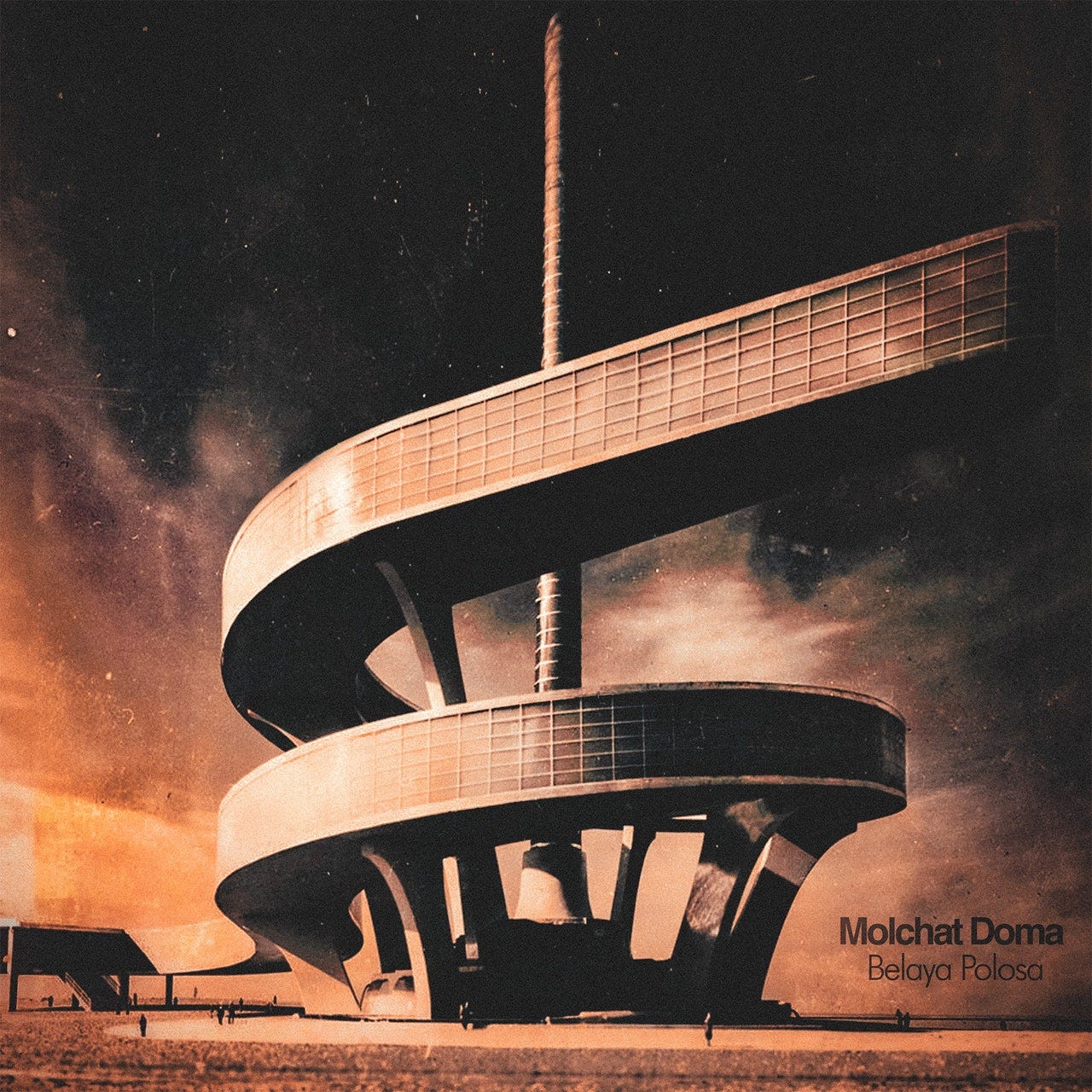Molchat Doma - Belaya Polosa (ALBUM REVIEW)
Release date: September 6th, 2024 (via Sacred Bones Records)
Between you and me, Molchat Doma is still part of the “dark aesthetics”.
Alright? Anyways.
Molchat Doma is one of the myriad muscial staples for a late 2010s - early 2020s sensation called “Russian doomer aesthetics” - an offshoot of the Doomer Wojak meme that is heavily based on and/or inspired by Soviet-era brutalism in Eastern Europe, made viral by a whole generation of pampered, overindulged teenagers and young adults in the West who would most likely shit themselves at first contact with the socio-economic upheavals and hardships that the Stalinist state had wrought upon its people - even long after its collapse in 1991 - plus the near-incessant regional instability that follows and still persists to this day.
However, it is undeniable that without such a trend, the Belarusian post-punk outfit would not be able to find themselves in the cult status that they are in now. That said, beyond the modern classic “Etazhi”, which contains the fan-favorite tracks “Sudno” and “Kletka” and helps spawn a whole new wave of derivative post-punk projects, their debut “S krysh nashikh domov” and next album after “Etazhi”, “Monument” do not get to enjoy the same level of appreciation.
Which is a damn shame. Especially if you consider how good their latest album “Belaya Polosa” is.
In “Belaya Polosa”, one is no longer met with the adherence to a single artistic direction per “Etazhi” and “Monument” - but rather, one will find a masterfully crafted pastiche made with an assortment of sounds and aesthetics across the goth culture, and even beyond.
The first two tracks, “Ty Zhe Ne Znaesh Kto Ya” and “Kolesom” kicks off with a base sound highly reminiscent of electronic masters a la Orphx and Kraftwerk: throbbing drum loop and synth bass patterns make the foundation for these two, which then split into two markedly different vibes: the former with its air of raving erraticism, while the latter is quite a callback to the sound that Molchat Doma established since the beginning, plus a sprinkle of Giorgio Moroder for good measure.
The vast goth influence does not stop at the aforementioned tracks: as a matter of fact, it is the predominant theme of “Belaya Polosa” - almost as if it is a love letter to the culture: elements of homages towards the greats like Depeche Mode, Bauhaus, and Cocteau Twins are organically incorporated into the post-Soviet, Eastern bloc austerity that takes the Western world by storm.
The third song “Son” - also the first promotional single for the album - is, however, made with substances that launched the band into popularity, the same stuff that made the much-loved “Etazhi”: shimmering lead guitar riff, assertive yet equally groovy bassline, 16th-note hi-hat drum loop, topped off with the signature nonchalant crooning from vocalist Egor Shkutko. Unsurprisingly, this is also the most-played track out of the entire album.
Given such a stylistic versality to be present in “Belaya Polosa”, Molchat Doma is still able to put together a musical opus that is not only dynamic and interesting in its offering, but also consistent in its overall energy - effectively addressing the biggest problem that their previous album “Monument” has, as that one is rather stagnant by the second half of the tracklist - as well as cohesive in the transitions between the tracks of different styles. The trio’s decision to push themselves further and explore more novel ideas has paid off and culminated in what I would consider their best album yet.
If you are still those who is still stuck in the “Sudno”/”Kletka” loop, I suggest picking up “Belaya Polosa” in its entirety and bask yourselves in this newest manifestation of post-Stalinist melancholy.





